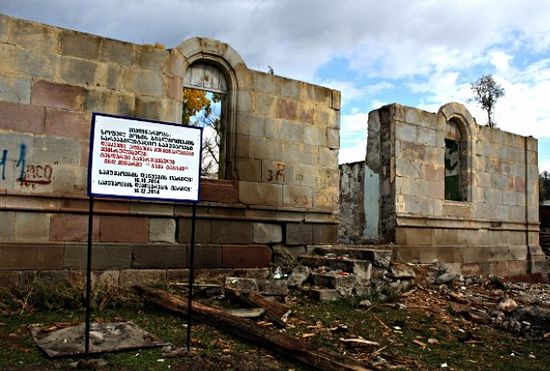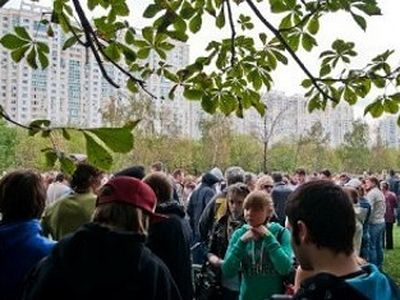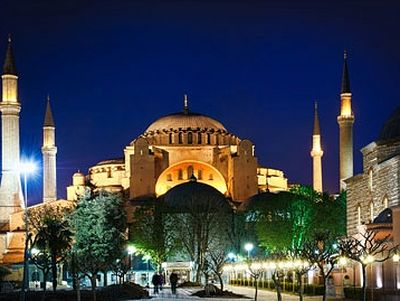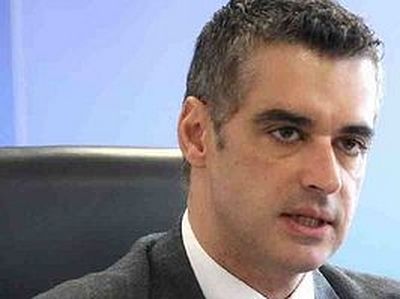November 13, 2014

A dispute over whether a building in southern Georgia is a Muslim mosque or a Christian church has caused bad feeling between locals from the two faiths. Some say the issue would never have led to so much trouble had the local authorities not mishandled things.
The contested structure in the small village of Mokhe was built as a mosque in 1927, and later seized by the anti-clerical Soviet authorities.
In recent years, the local Muslims have been demanding that it be handed back to them, while Christians say it was built on the site of an older church, and even used the stones from it, so it rightfully belongs to them.
A senior Orthodox cleric, Metropolitan Theodore of Akhaltsikhe and Tao-Klarjeti, has said there used to be a monastery on the site, so it should revert to the Georgian church authorities.
Things came to a head when the local government authorities in Adigeni district decided that the building – which is municipal property – would be a suitable place to put the village library, and sent in a squad of workmen to carry out the conversion.
Work began on October 16, but stopped abruptly six days later after scuffles between Muslims protesters and the builders.
Fourteen locals were arrested, and 11 of them were fined while the others were released without charge. Human rights groups issued a statement saying police used “disproportionate force” against the protestors.
On October 23, a day after the trouble in Mokhe, the governor of Samtse-Javakheti region, Akaki Machutadze, told a press conference that plans for the library had been agreed with local residents and clerics.
Muslim villagers told IWPR that there had been no consultation – the governor simply presented them with a fait accompli.
"It wasn’t a meeting, it was a criminal gathering. The governor threatened us… using incomprehensible slang like an organised crime boss from the past,” Jambul Abuladze, prayer leader at a mosque in the nearby village of Chela, said.
Resentment is especially high since when they were visited by Samtskhe-Javakheti’s governor together with Zakaria Endeladze, campaigning to be head of Adigeni district, and the chief mufti of Georgia this spring, they were promised they would be given the building. It never happened. After Endeladze was elected, he announced that the mosque’s present status as a cultural centre could not be changed.
Commenting on the case at a cabinet meeting, Prime Minister Irakli Garibashvili said that opening a library in the contested building was a good idea as both communities would use it and it would get around the issue of which faith group had prior claim.
He said the village of Mokhi already had a mosque, so “the Muslims don’t have a problem praying”.
The government has now sent in the head of its religious affairs agency, Zaza Vashakmadze, who met local people and announced he was setting up a commission of inquiry.
Giorgi Mshvenieradze of the Democratic Initiative NGO told IWPR, "It wouldn’t have been necessary to set up this commission if the authorities had involved all sides including the Muslims in the decision-making process.”
Mshvenieradze said the government needed to address the issue of restoring religious properties seized in Soviet times to their rightful owners, and take special care with the Muslim community.
“We’ve recently seen ill-thought-out if not deliberately destructive policies where the authorities place no value on the feelings of Muslims, in contrast to the dominant [Orthodox] church,” he said
Mokhe villagers say personal relationships have broken down as a result of the dispute.
“We never had a bad relationship, but now it isn’t as it was before,” said Levan Rekhviashvili, a Christian.
His neighbour Temur Mikeladze, who is Muslim, said, "We try not to make it obvious to each other, but a wall is rising up between us.”
Another resident. Natia Rekhviashvili, argues that Muslims already have places where they can go to pray.
"They have mosques in Naminauri, Kekhovani, Zedubani, Dertseli, Chela and in Mokhe itself,” she said. “How many mosques can 1,500 people have? It’s true that there aren’t many Christians in Mokhe, but we have to travel many kilometres to the village of Zarzma to pray.”
Mamuka Vashakmadze, the chief Muslim cleric in Samtskhe-Javakheti region, said there was a prayer-house set up in a private home in Mokhe, but the way it was set up meant it could not be counted as a mosque.
Twenty of the 66 households in Mokhe belong to the Georgian Orthodox Church, the majority faith group in a nation strongly associated with its ancient Christian heritage. The rest are Muslims.
The mosque was not built by its present inhabitants, but by the group known as Meskhetians (sometimes Meskhetian Turks), whom Stalin deported en masse from Georgia in 1994. In latter years, the Meskhetians have begun returning to Georgia, but not to Mokhe.
After the deportations, the village was settled by Orthodox Christians from Racha and Muslims from Ajara, as part of a policy designed to save both groups from the constant danger of landslides in their respective mountain homes.
The building in Mokhe is now under police guard. The authorities plan to despatch a team of historians, archaeologists and architects to make recommendations on its origin and ownership.



